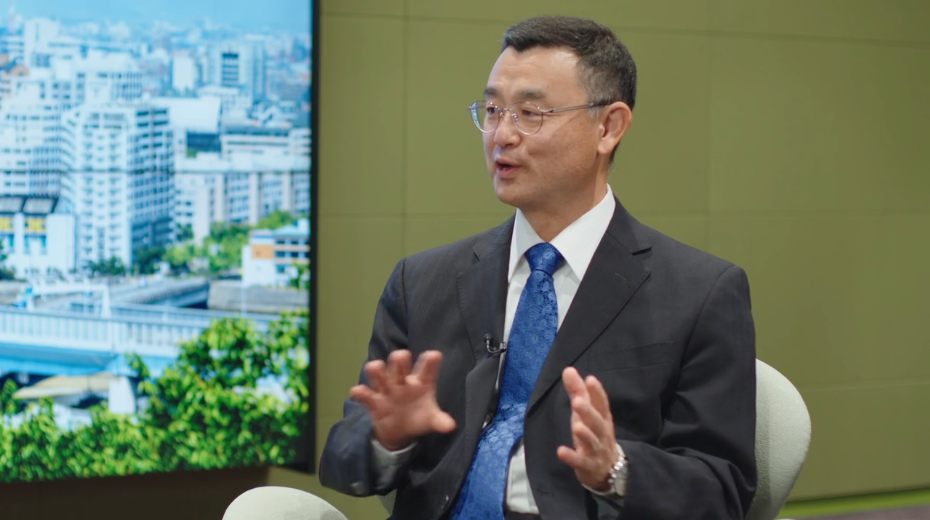
Photo: Smart City Institute Japan
Japan has a new way to measure city success – happiness
20 November 2023
by Sarah Wray
For a long time, governments have viewed economic growth as the main driver of better living standards, but there’s a growing recognition that gross domestic product (GDP) doesn’t tell the whole story.
Cities in Japan are pursuing a more nuanced way to understand quality of life and the approach is gaining traction elsewhere in the world too.
Japan is the world’s third-largest economy but in the latest World Happiness Report from the United Nations Sustainable Development Solutions Network, it was ranked 47th.
“There’s a striking gap there,” Takehiko Nagumo, Executive Managing Director of the Smart City Institute Japan (SCI Japan), told Cities Today during an interview at the recent Smart City Expo World Congress in Barcelona.
SCI Japan has around 700 members, half of which are local governments, alongside universities, businesses and other government organisations. Around two years ago, the Institute developed an evaluation system called the Liveable Wellbeing City Indicators (LWCI).
Nagumo said the starting point was the question: ‘If you implement a smart city, can you make your people happy?’
“We had no way to answer,” he commented.
The question also depends on your definition of a ‘smart city’ – and the indicators include but go far beyond technology.
Adding colour
The assessment uses 24 categories of subjective indicators and 24 corresponding categories of objective indicators, based on open data and a resident survey. The categories cover four main domains: urban environment, natural environment, community relations, and ‘staying true to oneself’.
For example, the objective measures incorporate healthy life expectancy rate, proximity to medical facilities and leisure amenities, the unemployment rate, the number of libraries and much more. The survey asks residents about their perceptions of things such as public transport, health facilities, crime, and culture and whether they feel an attachment to the city and believe it is vibrant.
Nagumo says the indicators cover factors from basic needs through to the necessities for ‘self realisation’ such as starting a business, pursuing chosen studies or participating in creative and cultural activities.
The assessment is open to all cities in Japan and the introduction of the LWCI is a requirement for local governments to receive funding from the Japanese government’s Digital Garden City Initiative Promotion Subsidy. So far, around 50 cities and prefectures have been selected. The subsidy was introduced in 2022 to support local governments to use digital technology and data to address urban challenges and revive their economies.
SCI Japan publishes the survey results and the open data on its website alongside a dashboard to visualise the data and compare between cities. Rather than ranking cities, though, the goal is to help each one “hone their individuality”, while promoting shared learning and continuous improvement.
Nagumo says the findings are already delivering insights: “One good example is that life expectancy rates are usually put as a first priority by policymakers in local government. And that makes sense intuitively. But if you look at the data, there’s no correlation between longevity and a sense of wellbeing. That’s surprising but it’s simple: if you don’t have a purpose in life, a sense of contributing to your neighbours, you don’t really have a sense of belonging. So we identified that just living a long time isn’t a good policy measure in itself; you have to give colour to the lives of people.”
On other broad trends, Nagumo said many people report feeling a low sense of autonomy in life, and there is a need for more openness to other cultures and to address gender disparities.
“We are looking at ourselves through the indicators to find wellbeing factors other than economic factors, which didn’t exist before, ” he said.
Global alliance
Now, more cities in Japan and beyond are adopting the approach. Tampere in Finland – ranked as the world’s happiest country – is adapting the LWCI for its own use and cities in Spain, the US and Brazil have expressed an interest.
“We are creating a global alliance of cities interested in wellbeing indicators,” Nagumo said.
Asked whether the term ‘smart city’ resonates with everyday people, Nagumo shook his head: “We regret that we started off this activity under the name of smart cities. Sometimes I get criticised by my friends who say I named the Institute wrong.
“I should have named it something related to sustainability or wellbeing in cities.”
He added: “Autonomous cars everywhere, drones overhead – that alone cannot make you happy. We have to step back and ask what does make people happy.”







